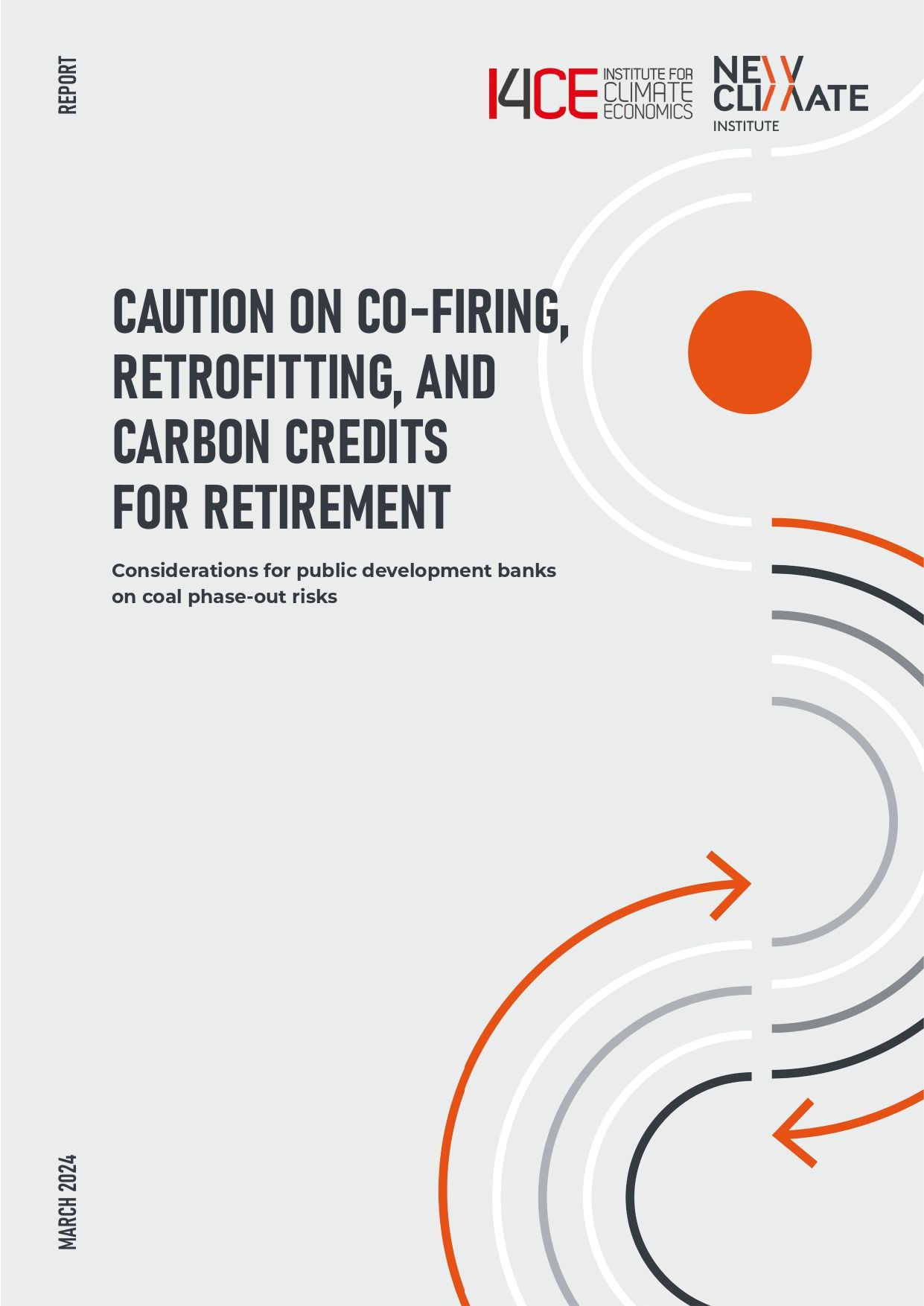Caution on Co-firing, Retrofitting, and Carbon Credits for Retirement: Considerations for Public Development Banks on Coal Phase-out Risks
With their historical role in funding coal capacity and public mandate, public development banks have a crucial role in enabling coal phase-out. Co-written with NewClimate Institute, this short paper explores many of the risks associated with proposals for abatement technologies and carbon credits as an input to current discussions on early coal retirement.
To reach climate objectives and avoid the worst impacts of climate change, it is essential to both halt the construction of any new coal-fired power plants and retire a significant share of the global fleet before the end of their technical lifetime. Associated with this discussion are the questions of how to bring about a just transition and shift utilities from fossil fuels towards renewables, but also of what to do with the existing infrastructure and sites.
With their historical role in funding coal capacity and public mandate, public development banks have a crucial role in enabling coal phase-out. A growing number of public development banks and countries have pledged through the Clean Energy Transition Partnership and institution-specific policies to stop financing new coal power generation in line with the Glasgow Climate Pact’s call to phase down “unabated coal power”. This pledge was renewed more recently, during COP28, as the global stocktake decision text called to accelerate efforts “towards the phase-down of unabated coal power”. However, the caveat “unabated” opens the door for abatement technologies which threaten to undermine rapid phase-out efforts. Various national phase-out strategies include propositions that promote co-firing with other fuels such as biomass, hydrogen or ammonia. Others promote retrofitting existing infrastructure with carbon capture and storage technology. As there is no consensus on a definition for transition finance nor technical criteria for qualifying sectors, there is a high risk of using scarce public funds to enable technologies that result in little decarbonisation impact.
Phase-out will require significant funds to incentivise early retirement and capital investment to build up renewable alternatives coupled with energy storage. Public development banks can play an integral role in enabling private investment in phase-out but should proceed cautiously to ensure they do not inadvertently set perverse incentives.
I4CE and NewClimate Institute explored many of the risks associated with proposals for abatement technologies and carbon credits in more detail as an input to current discussions on early coal retirement. This analysis is based on a review of coal phase-out and transition literature, a series of workshops and interviews with experts, and current policy developments. In exploring the risks, we encourage caution when public development banks consider these proposals to avoid the inefficient use of public funds and inadvertently prolonging coal dependence. We discuss co-firing, carbon capture and storage, and carbon credits.
Public development banks should exercise caution in engaging with coal phase-down to avoid setting perverse incentives that might extend plant lifetimes, offer incomplete emission reductions, and shift focus away from early retirement. Solutions that advocate cutting emissions while still relying on coal usage represent false solutions that fail to address the urgency of the climate crisis and as a result the risk of asset stranding or the imperative for early retirement. False solutions divert limited climate finance, presenting a high risk of delaying the transition.

